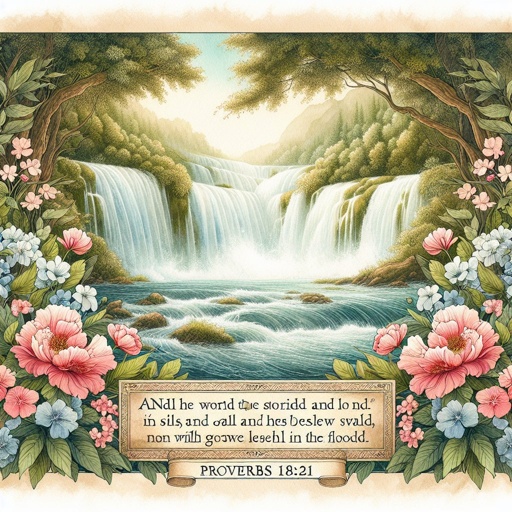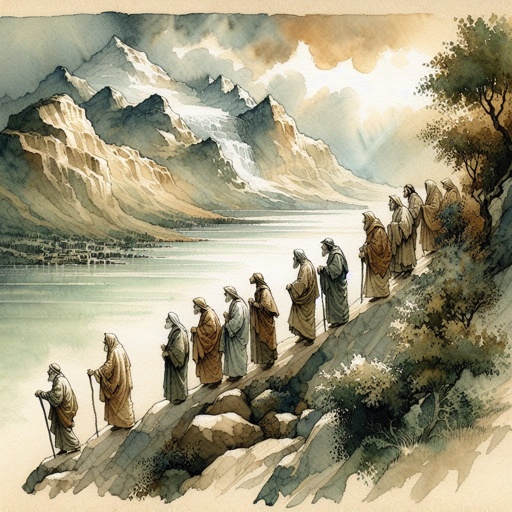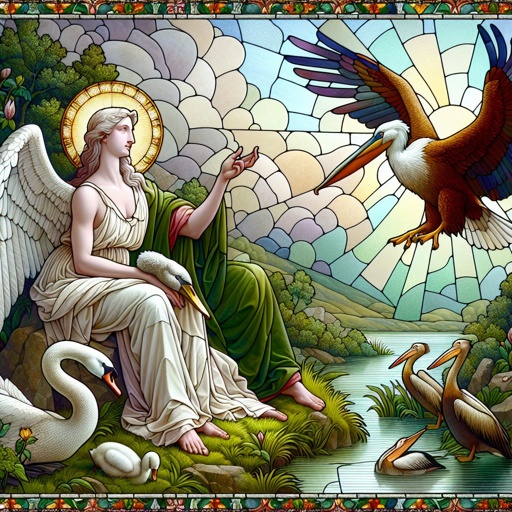What does Leviticus 18:21 mean?
"And thou shalt not let any of thy seed pass through the fire to Molech, neither shalt thou profane the name of thy God: I am the LORD." - Leviticus 18:21

Leviticus 18:21 - "And thou shalt not let any of thy seed pass through the fire to Molech, neither shalt thou profane the name of thy God: I am the LORD."
Leviticus 18:21 in the King James Version of the Bible reads, "And thou shalt not let any of thy seed pass through the fire to Molech, neither shalt thou profane the name of thy God: I am the Lord." This verse is part of a larger passage in the book of Leviticus that outlines various sexual prohibitions and other moral laws that the Israelites were to follow.
The context of Leviticus 18:21 is important for understanding its meaning. The verse is part of a section in which God is instructing the Israelites on how to live morally and upright according to His laws. Molech was a pagan deity worshiped by the Canaanites, who were the previous inhabitants of the land that the Israelites were about to enter. Molech worship included the horrific practice of sacrificing children by passing them through fire. This verse prohibits the Israelites from participating in such barbaric practices.
The theme of this verse is the sanctity of human life and the rejection of idolatry. The passage emphasizes the importance of honoring God and His commandments by refraining from participating in the heinous acts of the surrounding cultures. This theme is consistent with the broader message of the book of Leviticus, which focuses on the holiness and purity that God expects from His people.
The symbolism in Leviticus 18:21 is powerful and multilayered. First, the act of passing children through the fire to Molech represents the ultimate sacrifice, but one made to a false and evil god. This practice highlights the evil and depravity that can occur when people turn away from the one true God. The prohibition against this act serves as a reminder of the sanctity of human life and the importance of upholding God's moral standards.
Furthermore, the verse also symbolizes the larger struggle between good and evil, between the worship of God and the worship of false idols. By rejecting the practices of the Canaanites and refusing to participate in the worship of Molech, the Israelites were demonstrating their loyalty to God and their commitment to following His commandments. In a broader sense, this symbolizes the ongoing spiritual battle that believers face in choosing to honor and obey God in a world filled with temptations and false gods.
The commentary on Leviticus 18:21 also extends to the broader implications for modern believers. While the specific prohibition against sacrificing children to Molech may not apply directly to contemporary life, the underlying principles remain relevant. The verse serves as a reminder of the importance of honoring God and upholding His moral standards in a world that often promotes and celebrates practices that are contrary to His will. It calls believers to stand firm in their faith and to resist the temptations and pressures of secular culture.
In conclusion, Leviticus 18:21 is a powerful and sobering verse that addresses the sanctity of human life, the rejection of idolatry, and the ongoing spiritual battle between good and evil. It serves as a stark reminder of the importance of honoring God and upholding His moral standards, even in the face of cultural opposition. The symbolism and themes in this verse provide valuable insights for believers today, encouraging them to remain faithful to God and to stand firm in their commitment to His righteous ways.
Leviticus 18:21 Artwork

Leviticus 18:21 - "And thou shalt not let any of thy seed pass through the fire to Molech, neither shalt thou profane the name of thy God: I am the LORD."

Leviticus 21:18 - "For whatsoever man he be that hath a blemish, he shall not approach: a blind man, or a lame, or he that hath a flat nose, or any thing superfluous,"

Leviticus 21:19 - "Or a man that is brokenfooted, or brokenhanded,"

Proverbs 18:21

Proverbs 18:21

Proverbs 18:21

Proverbs 18:21

Proverbs 18:21

Proverbs 18:21

Proverbs 18:21

Proverbs 18:21

Proverbs 18:21

Proverbs 18:21

Proverbs 18:21

Proverbs 18:21

Leviticus 11:18 - "And the swan, and the pelican, and the gier eagle,"

Leviticus 21:16 - "¶ And the LORD spake unto Moses, saying,"

Leviticus 18:1 - "And the LORD spake unto Moses, saying,"

Leviticus 21:13 - "And he shall take a wife in her virginity."

Leviticus 18:22 - "Thou shalt not lie with mankind, as with womankind: it is abomination."

Leviticus 13:18 - "¶ The flesh also, in which, even in the skin thereof, was a boil, and is healed,"

Leviticus 24:18 - "And he that killeth a beast shall make it good; beast for beast."

Luke 21:18 - "But there shall not an hair of your head perish."

Leviticus 18:16 - "Thou shalt not uncover the nakedness of thy brother's wife: it is thy brother's nakedness."

Leviticus 21:22 - "He shall eat the bread of his God, both of the most holy, and of the holy."

Leviticus 21:24 - "And Moses told it unto Aaron, and to his sons, and unto all the children of Israel."

Leviticus 18:18 - "Neither shalt thou take a wife to her sister, to vex her, to uncover her nakedness, beside the other in her life time."

Proverbs 21:18 - "The wicked shall be a ransom for the righteous, and the transgressor for the upright."

Leviticus 18:8 - "The nakedness of thy father's wife shalt thou not uncover: it is thy father's nakedness."

Matthew 21:18 - "Now in the morning as he returned into the city, he hungered."